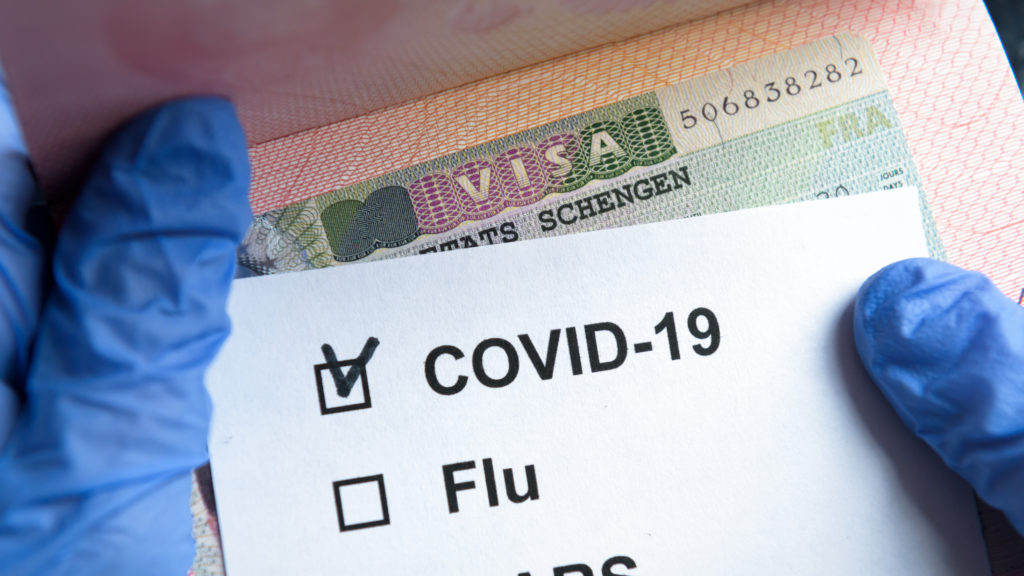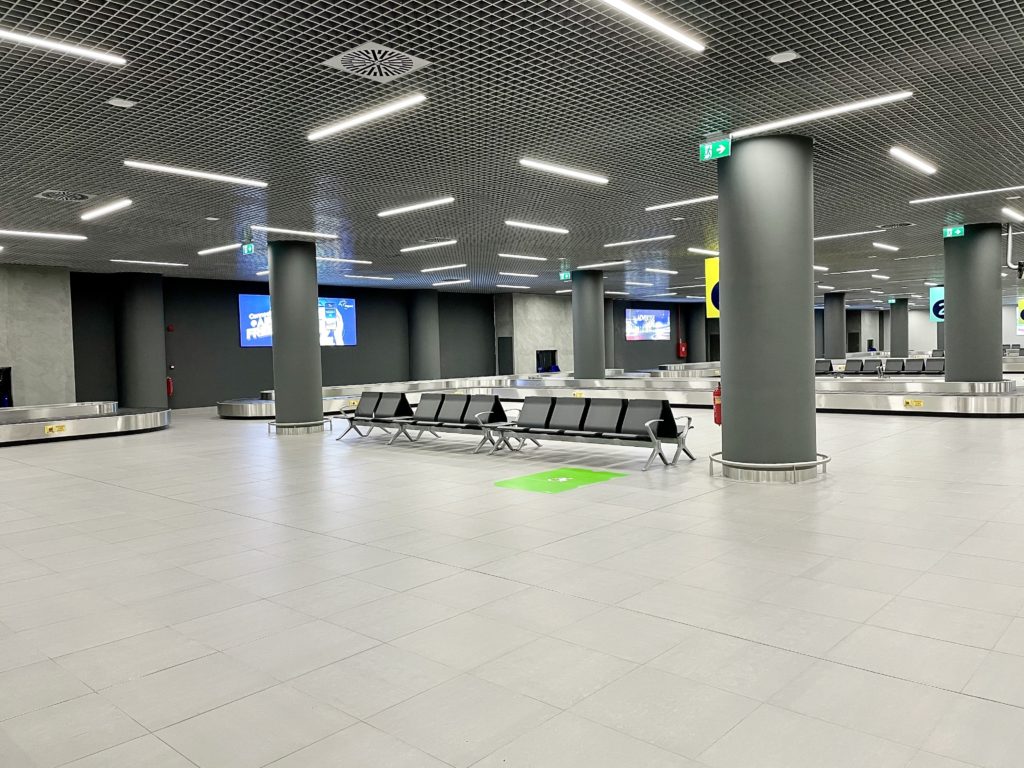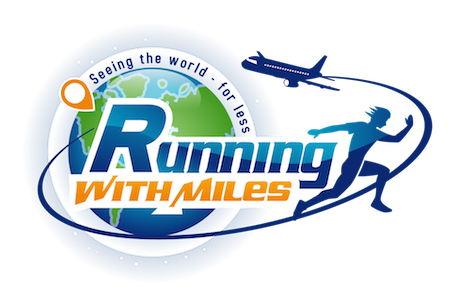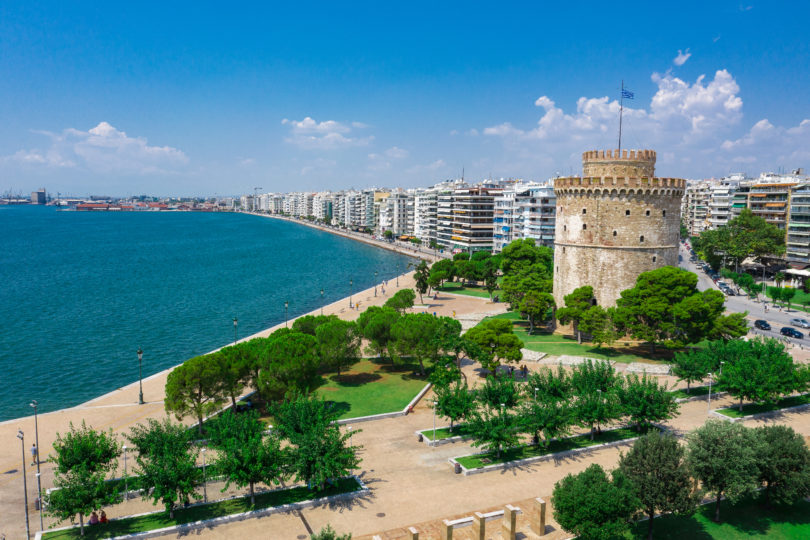While Greece did a great job in keeping the virus count down in the first wave, it has been a much more difficult second wave in terms of viral load and patiences in the hospitals. As a result, Greece went back into lockdown in early November and they remain in lockdown (with curfews) even now. This has caused them to initiate new requirements for those entering – no matter if they are Greek citizens or not.
New Requirements for Entering Greece
Link: Greece Travel Information
First of all, Greece, like most other countries in Europe, still are not letting Americans into the country except for certain conditions (things like being married to a Greek citizen, having resident status, school, etc). In fact, there are only a few countries (outside of EU citizens) that currently are allowed into Greece – Singapore, Australia, Japan, New Zealand, Rwanda, South Korea, Thailand, United Arab Emirates, and the UK.
The current requirements on incoming passengers exist until midnight on January 21 but may be extended. This went into effect on January 7.
Negative RT-PCR Test Within 72 Hours of Arrival

COVID-19 coronavirus pandemic and travel concept, positive mark COVID-19 and Schengen Visa stamp. Passport control of tourists with coronavirus check. Novel corona virus outbreak, epidemic in Europe.
For any people traveling to Greece from the US, this may be the most problematic of the requirements. The US just does not have that many locations that will guarantee a turnaround in less than 48 hours. Since your airline will require you to show this test to them before beginning your journey (if your ticket to Greece is part of the same itinerary), this means you will need the results back long before you enter Greece.
Our Experience
We recently went through this as we were returning to Greece. There was a lab in Nashville that was charging $250 for a few hour turnaround and we were considering flying to there from upstate NY to get tested since we could not find a place with a firm guarantee. Fortunately, we did not as we found out from a fellow passenger who did go there that they are now telling people when they arrive at the testing site that it could take 3-5 days (mostly due to the bombing in Nashville on Christmas Day).
We finally found a place that I will be posting a review of shortly – Sameday Testing (they actually do not return results the same day, just the testing can be done the same day as your appointment or as a walk-in). For now, I can say that they did get me the results back in time.
One more thing – the Greece government page says that the results should be RT-PCT with the results written in English and your passport number written on the form. This is something Sameday Testing offers but did not fulfill with us and we had no problems on entry for not having the passport numbers written on the test results.
It was an interesting thing to be on a fully-loaded airplane that had 100% negative tests (at least up to the 70 hours before departure!). A bit comforting to be sure!
Random Testing on Arrival

Passengers from some “high-risk” countries may be tested on arrival
All passengers are still required to fill out the Passenger Locator Form (PLF) before the day of arrival in Greece. Based on your origination, you will need to get a rapid test done upon arrival. If you are coming from Russia, China, the US (among others), you will need to be tested.
This test is one that will deliver results back in 24 hours and you will only receive a call if you are positive. This is a non-invasive test (I have received it three different times) that is in the mouth though the last test felt more like a strep test (it caused a slight gag reflex).
Self-Isolation for 7 Days
This is the latest measure that went into effect on January 7. All incoming passengers are supposed to self-isolate for 7 days at the address listed on their PLF. For visitors, this means that the first 7 days of your time in Greece will need to be spent in the hotel or wherever else you are staying. If your stay is less than 7 days, you will need to isolate that entire time.
I will say that this is something that was neither conveyed to us at the airport by the police that greeted us, by the SMS I received from the government about movement restrictions, or by the people that took our test. It was something I only heard about from the news and I had received zero check ups to ensure that we were self-isolating. So, it seems it is very much something that they are trusting the people to observe on their own without any kind of check-in.
Mandatory 7 Day Quarantine for UK Arrivals
Due to the new strain in the UK (which has arrived in Greece), any people traveling to Greece from the UK will have to observe a mandatory 7 day quarantine. I have heard this is something that is being enforced. At the the end of the 7 days, the traveler will receive another test. If it is positive, a 14 day quarantine will be mandated.
Movement Restrictions in Effect
The lockdown going on still requires all people to either fill out a form for each departure from their residence or send a SMS to 13033. The information and form can be located here. Note that foreign phone numbers will not have access to the SMS number so visitors with only a foreign number will need to fill out a form each time.
Here are the allowable movements allowed from the place of residence:
- Movement to the pharmacy or visiting a doctor or to donate blood, in the case that this is recommended after a previous communication.
- Movement to an in-service supply store of basic goods (supermarket, mini-market), where they cannot be sent out.
- Movement to a public service or bank, insofar as electronic transaction is not possible.
- Movement to help people in need or escort minors to/from school.
- Movement to a funeral ceremony under the conditions laid down by law or movement of divorced or separated parents necessary to ensure communication between parents and children, in accordance with the provisions in force.
- Physical exercise outdoors or movement with a pet, individually or per three persons, in the latter case having regard to the necessary distance of 1.5 m.
Masks must still be worn outdoors and curfews are in effect from 9pm until 5am everyday. This will be re-evaluated January 21.
Bottom Line
Greece is taking additional measures to keep Covid-19 out of the country. This is as the daily virus count has been lowering but the number of intubations in-country has stayed relatively the same. Greece has an older population that mostly lives with families and hospitals that have limited number of intensive care beds due to building sizes, etc. As a result, they are working very hard to make sure these beds do not reach full capacity yet again.
For now, even though Greece is enjoying one of the best Januarys (weather-wise) in years, this is not the time to visit Greece for tourism. Most places are closed and movement is restricted. Hopefully, these measures will be successful with the data in country and the country will be able to open again in the spring for tourists. There is talk that things may be more back to normal by April.








